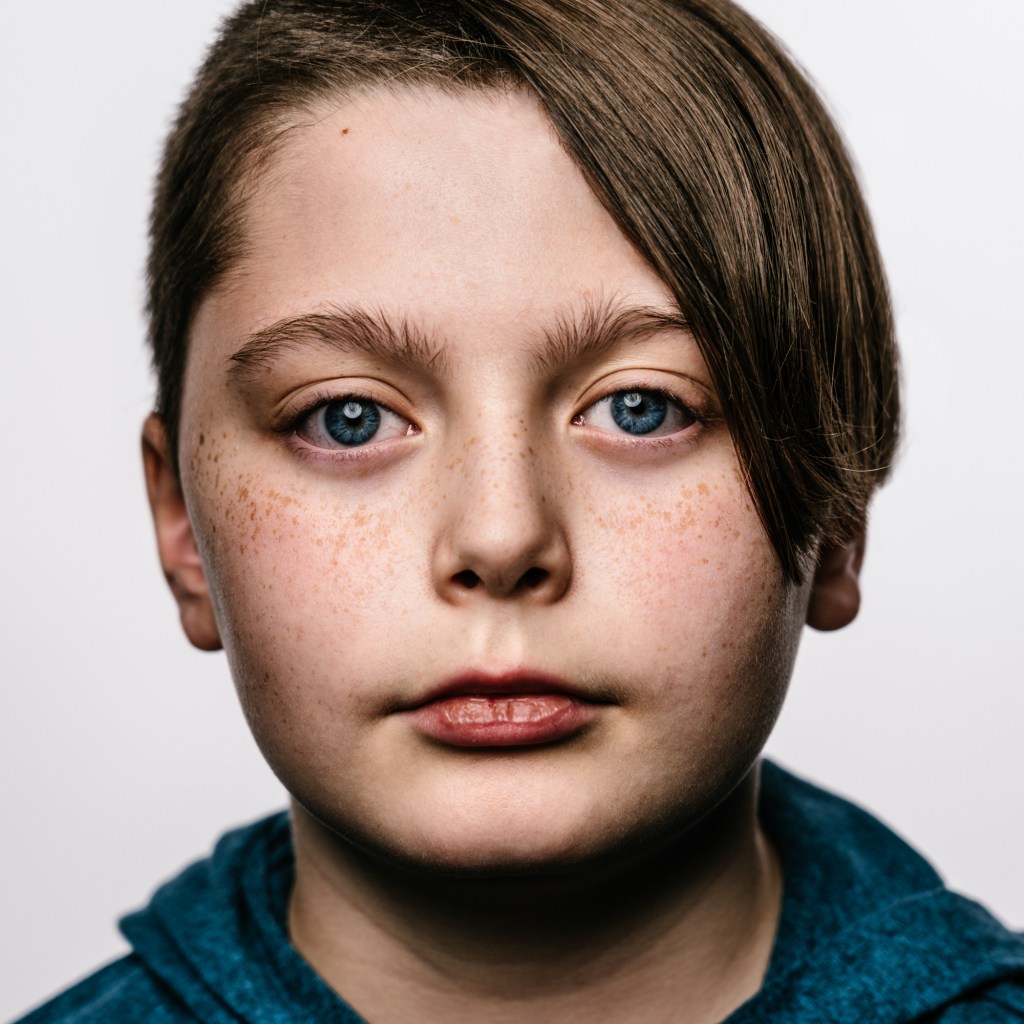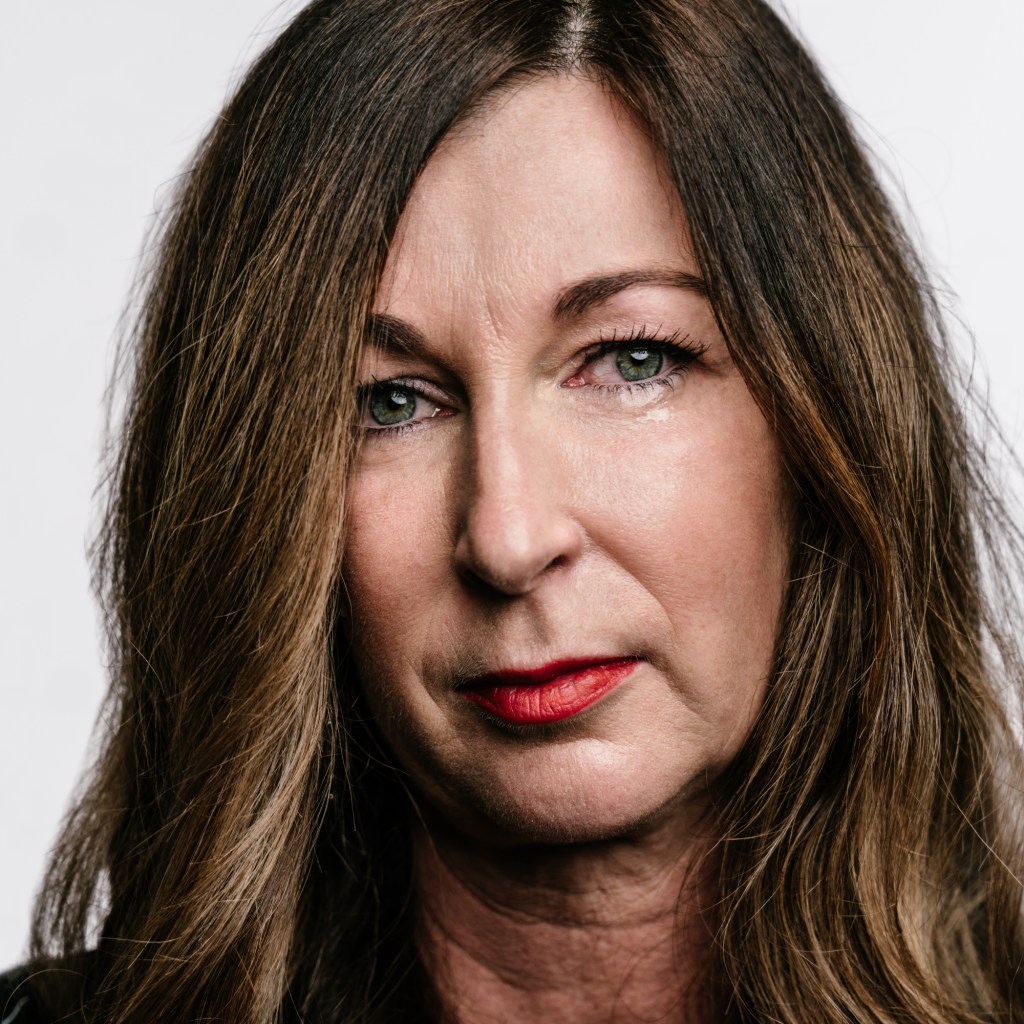For the second time in his life, Lee Wiley’s face and story are part of an exhibit by Springfield photographer and videographer Randy Bacon.
Wiley was featured in Bacon’s 2016 exhibit, The Road I Call Home, which showcased photos and stories from Springfield’s unsheltered community.
Wiley’s circumstances have changed remarkably since then. He is now housed and works as a peer support specialist for Burrell Behavioral Health, helping folks who are homeless and/or struggling with substance use disorder.
And this time around, Wiley is featured in Bacon’s Art of Being Me exhibit, a collaboration between Bacon and the Burrell Foundation.
The Art of Being Me exhibit showcases the personal stories of more than 20 Burrell Behavioral Health clients and staff who have lived experience with mental health conditions. The exhibit is open to the public at Bacon’s gallery at 209 W. Commercial St., through July 30.
Wiley first became acquainted with Burrell Behavioral Health about seven years ago when he was homeless in Springfield.
Wiley, now 59, used to visit the now-defunct Bill’s Place, a drop-in center operated by Burrell that served as a place where the unsheltered community could get a meal, take a shower and access mental health services.
“I asked a lot of questions. There would be days I wanted to do better,” Wiley said. “There were all these signs saying ‘Burrell Behavioral Health’ and ‘If you are hopeless.’ And that is how I was feeling, so I said I need a caseworker to talk to.”
That caseworker, Kellie Komodi, would quickly become a very important part of his life. Komodi helped Wiley get a mental assessment. He was diagnosed with generalized anxiety and major depressive disorders. He also saw a psychiatrist and began going to therapy.
Wiley completed the mens’ recovery programs at both Victory Mission and Salvation Army’s Harbor House. When his time was up with those programs in 2019, Komodi and the team at Burrell helped Wiley get approved for Social Security and get into an apartment.
But just because he was housed didn’t mean Wiley was going to leave his street family behind.
He started volunteering with the Gathering Friends, a grassroots group of advocates who help Springfield’s unsheltered community. He also served as a board member for the Ozarks Alliance to End Homelessness.
Fast forward a few years, and Wiley is an important part of Burrell Behavioral Health’s Homeless Services team — thanks to some gentle pushes from Komodi, who is now Burrell’s Homeless Services Coordinator.
In 2021, Wiley became a peer support specialist. That’s someone who’s been successful in the recovery process and can help others experiencing similar situations. He connects people to resources and walks along beside them as they navigate what can be an overwhelming process to get into housing or find a treatment program.
Four days a week, Wiley can be found at his old stomping grounds — places like the Veterans Coming Home Center, a daytime drop-in center for homeless people, on the streets or in camps. This time, though, Wiley is there to offer support for those seeking to make changes in their lives.
“When I started doing it,” Wiley said, “the more people I saw, the more I wanted to help people.”
Well-known in the unsheltered community
Having been homeless in Springfield for a few years, Wiley is well-known among the unsheltered community and people trust him.
“When I share my story to establish peer service, one of the things they say is, ‘Well, you understand,’” Wiley said. “I’ve got guys that’s been in prison. I’ve been to prison. I’ve got guys that say, ‘When I think about why she left me, I start using.’ I can relate to that.”
In the past year, Wiley said he’s helped six men get off the streets and find sobriety. Those six men have not relapsed, Wiley said.
“I feel real good about that,” he said, smiling. “They are doing good.
“I like doing it,” Wiley said of his work as a peer support specialist. “Trust is the most important part. You let them know you aren’t there to judge. You are there to see what changes they want to make to better their life.”
When he met with Bacon recently for the Art of Being Me project, Wiley said the photographer asked him to be part of the video project. Bacon filmed the subjects defining, in their own words, concepts such as trust, understanding and perseverance.
Bacon asked Wiley to define what “grateful” means to him.
“I’m grateful for the people that showed me love and compassion regardless of where I was at in my life,” Wiley said in the video.
He later told the Daily Citizen he was thinking of the Gathering Friends’ co-founders Whitney Creehan and Jennifer Cannon when he said those words to Bacon.
Wiley laughed as he recalled meeting Cannon and Creehan. He had just become homeless and someone stole all his belongings.
“I was ready to tear up the world,” he said. “And that’s when I met the Gathering Friends.”
They gave him shoes and clothes, Wiley said, and then asked if he needed anything else.
Wiley said he was a little embarrassed to ask for what he needed most.
“Them being females,” he recalled, laughing, “but I needed underwear. They brought me underwear, and they became my friends.”
He credits those friendships with helping him turn his life around.
“I am grateful for people like Whitney and Jennifer,” he said. “It could have went either way for me. I could have been in prison for the rest of my life.”

Photographer shares about exhibit
As part of his 7 Billion Ones projects, Bacon has featured a variety of somewhat vulnerable and special populations in his work — the homeless, survivors of domestic violence, people with disabilities.
Asked what draws him to these types of projects, Bacon said he wants to give a voice to people who have important stories to tell but are often overlooked or ignored.
“Whether you’re talking about this broad topic of mental health where you have individuals dealing with maybe addiction issues or depression, bulimia, anorexia, or maybe they’ve lost someone to suicide,” Bacon said, “They have learned things that they feel need to be heard. That is a valid way to connect with people and to help people.
“That’s kind of the thread that runs through all these different topics,” he continued. “You have these beautiful, unique people that rarely get to take all of their gifts and share it with the world.”
Bacon said he hopes the Art of Being Me exhibit helps shed light on the prevalence of mental health issues and lets people know they are not alone.
“The idea was to really show as wide a demographic of people as possible, ages, ethnicities and on and on,” Bacon said, “as well as the challenges that they’re dealing with.
“I’ve got my own personal challenges,” he added. “Mental health literally does cross pretty much every demographic possible.
The Art of Being Me exhibit is a partnership between Bacon’s studio, the Burrell Foundation and Burrell Behavioral Health. Prior to the opening last weekend at Bacon’s gallery in Springfield, the Art of Being Me was on display at a mental health conference in Louisville, Kentucky. And when it leaves Springfield later this summer, the exhibit will be headed to Columbia, Kansas City and St. Louis. From there, it will head to Los Angeles for the National Mental Health Conference.

Getting a second opportunity to photograph Wiley was very special, Bacon said.
“Lee is so awesome,” Bacon said. “What a wonderful experience getting to photograph him again.
“And now Lee, not only he’s not homeless, but he’s taken all of that stuff he’s learned from the street,” Bacon said, “and he’s now a peer counselor. He’s helping others that’s going through very similar things.”
Bacon said he appreciates how honest and vulnerable the subjects of the Art of Being Me were when they came to his studio.
“One said, ‘the reason I’m doing this, the reason I’m being so vulnerable and real and putting myself out there is because maybe I can help somebody. Even if it’s just one person, it’s worth it.’
“To me, that just always kind of punches me in the heart and takes my breath away,” Bacon said. “People, I believe, are good. … People have this thing inside them where it’s like, ‘Hey, I just want to do something that’s going to help somebody.”

A press release described the exhibit as having more than 20 mental health stories through still portraits, motion portraits and video.
“The goal is to create a new understanding of behavioral health issues and change the way we all feel about our own mental health, and the mental health of those we love,” the release said. “Through this campaign, our hope is to increase mental health awareness, encourage conversations about mental and emotional health, and ultimately, save lives. Seeing the faces and hearing the stories of those who fight for their lives every day to survive mental and emotional hardships might just provide the strength and courage needed for one more person to seek the help they deserve.”
Want to go?
The Art of Being Me is open to the public through July 30 at the Randy Bacon Gallery, 209 W. Commercial St.
The gallery is open 9 a.m. to 4 p.m. Tuesday-Friday and 11 a.m. to 4 p.m. Saturday. (Bacon said these are “typically” the gallery hours. He’s sometimes out taking photos.)

